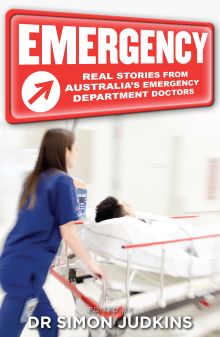
From the time Dr Anthony Cross was in Year 10, he knew exactly what he wanted to do as a career. He wanted to be a doctor in the emergency department. “In some senses I reckon it is the real essence of medicine. We see people who haven’t been treated before, we see chronic problems, eating problems; it’s a real mix.” Dr Cross tells Afternoons.
Now he’s the president of the Australasian College for Emergency Medicine (ACEM). Dr Cross and some of his fellow emergency department colleagues have written about their experiences in a new book called EMERGENCY: Real Stories from Australia's Emergency Department Doctors. “Many of us have these stories and they have an affect on us all. We talk about them amongst ourselves and it seemed like a good idea to put them together and give the wider population an understanding of what it’s like in an emergency department if you’ve never had the misfortune to visit one” Cross says.
The people who work in the ED have to be able to cope with uncertainty and pressure according to Dr Cross. “I think of it as focusing on the problems in front of you. You have to be able to consider the whole spectrum of what’s going on around you all the noise and light all the problems and focus on priorities. What are the things that most matter now? What’s the thing I need to address first of all to keep this patient alive and the second thing and the third thing and then later on the diagnostic process?”
The story Dr Cross shares in the book is called Close to the Bone. It’s about a motorcyclist struck by a truck whose life was eerily similar to his own. Both men were keen motorcyclists. Both men were of a similar age. Both men had sons of a similar age and both men had pregnant wives at the time. “This was a man whose life was irrevocably changed by a terrible accident and yet in so many ways he was so similar to me and that really hit home,” says Cross.
It’s one of the hardest things ED staff need to do, says Cross, balancing emotion and medical skill. “I think of the difference between sympathy and empathy. With sympathy, you take on the emotions of other people. With empathy you understand those emotions. You remain empathetic but you can’t allow it to cloud your own judgment.”

